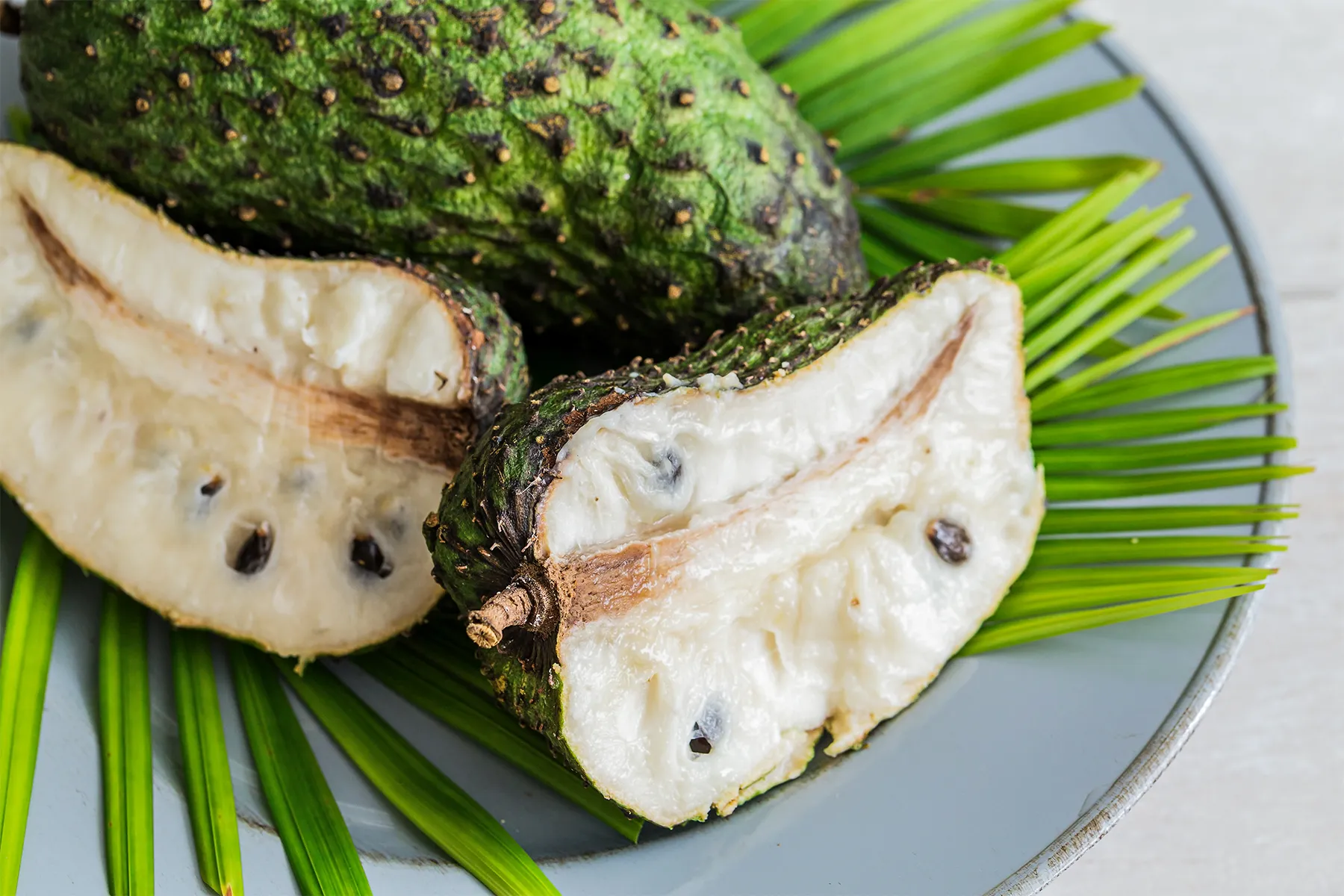Fatty liver disease is becoming more common in Ghana, largely due to rising cases of obesity, diabetes, and poor diet habits. As people seek natural ways to protect their liver, one tropical fruit often mentioned is soursop known locally as Aluguntugui. But is soursop really good for fatty liver? Let’s explore the science, benefits, and risks behind this popular fruit.
Read Also: Soursop Leaves: The Magical Underrated Benefits.
🍈 What is Soursop?

Soursop (Annona muricata) is a tropical fruit native to West Africa, the Caribbean, and parts of South America. It’s easily recognized by its green spiky skin, soft white flesh, and sweet-sour flavor. Ghanaians enjoy it fresh, in smoothies, or as juice — but beyond taste, soursop is rich in nutrients that support overall health.
Nutritional highlights of soursop include:
- Vitamin C (a strong antioxidant)
- B vitamins (for metabolism and energy)
- Potassium and magnesium (for heart and liver function)
- Dietary fiber (for digestion and detoxification)
These nutrients contribute to its growing reputation as a natural liver cleanser and part of fatty liver natural remedies.
🌿 Benefits of Soursop for Fatty Liver
Studies suggest that soursop may offer several benefits for people with fatty liver. Here’s how it helps:
1. Rich in Antioxidants
Soursop is packed with antioxidants like vitamin C, phenols, and acetogenins that fight oxidative stress — one of the main causes of liver damage.
These compounds help neutralise harmful free radicals and may reduce liver inflammation over time.
2. Reduces Lipid (Fat) Accumulation
Animal studies have shown that extracts of soursop leaves and pulp can lower cholesterol and triglyceride levels.
This means soursop could help prevent excess fat buildup in the liver — a major problem in both alcoholic and non-alcoholic fatty liver disease.
3. Supports Blood Sugar Regulation
People with fatty liver often struggle with insulin resistance. Soursop’s natural compounds may improve glucose metabolism, helping to balance blood sugar levels and reduce further liver strain.
4. Promotes Liver Protection
In some studies, soursop leaf extract has shown protective effects against toxins that damage liver cells. The bioactive compounds appear to strengthen liver enzymes and support the body’s natural detox functions.
In summary: Soursop for fatty liver may work through a combination of antioxidant defense, fat regulation, and glucose control — all essential in managing liver health.
Read Also: 5 Working Hacks to Shed Fat Fast: Skip if you can’t be disciplined and consistent.
⚠️ Risks and Side Effects

While soursop has many benefits, overuse or unregulated consumption can be risky.
Potential side effects include:
- Liver and kidney toxicity: Large doses of soursop leaf extract have been linked to liver or kidney damage in some studies.
- Neurological risks: Some research suggests that long-term consumption of soursop, especially from leaves or seeds, may affect nerve function and lead to symptoms similar to Parkinson’s disease.
- Low blood pressure: Soursop may reduce blood pressure, which could be dangerous for people already taking hypertension medication.
👉 Important: Always consult a doctor before using soursop for fatty liver or any medical condition. Natural doesn’t always mean harmless.
☕ How to Use Soursop Safely
If you want to enjoy soursop as part of a liver-friendly lifestyle, moderation is key.
Safe ways to consume soursop:
- Fresh fruit: Eat ripe soursop 2–3 times per week as part of a balanced diet.
- Soursop tea for liver health: Use a few dried leaves to make mild tea once a day. Avoid boiling for too long or drinking in excess.
- Soursop juice: Prepare natural juice without added sugar. Drink occasionally, not daily.
Who should avoid soursop:
- Pregnant or breastfeeding women
- People with kidney or liver problems
- Those on blood pressure or diabetes medication
These groups should seek professional medical advice before using soursop or related supplements.
🔬 Scientific Research on Soursop and Liver Health

Recent studies provide some support for soursop’s liver benefits — though most are based on animal experiments, not human trials.
- A 2019 study found that Annona muricata leaf extract reduced liver fat and improved enzyme function in rats with fatty liver disease.
- Another 2021 study showed that soursop’s antioxidant compounds could protect liver cells from chemical-induced damage.
- However, human research remains limited, and long-term safety data are still lacking.
In short, soursop shows promising potential, but more scientific evidence is needed before it can be recommended as a proven treatment for fatty liver.
Read Also: Truth about Herbal Teas in Ghana: Do they really help you to lose weight?
✅ Conclusion: A Balanced View
So, is soursop good for fatty liver?
Yes — in moderation, soursop may support liver health due to its antioxidants, fat-lowering effects, and protective properties. However, it should not replace medical treatment or lifestyle changes such as weight control, regular exercise, and reducing alcohol or sugar intake.
For anyone considering soursop for fatty liver, the safest approach is to:
- Eat it as part of a balanced diet
- Avoid excessive leaf or seed use
- Consult a healthcare professional before starting any soursop-based remedy
Your liver is vital treat it with care and informed choices.




One thought on “Is Soursop Good for Fatty Liver? Benefits, Risks & Expert Insights”
Comments are closed.